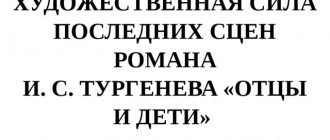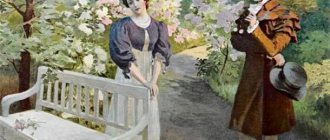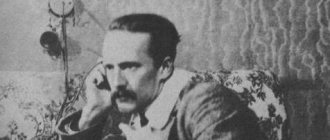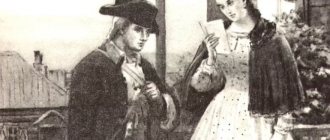The meaning of the work "Don Quixote"
The absurdly tall Don Quixote and his short servant set off on an exciting journey. Stupid situations, comical adventures. It seems nothing intriguing or inspiring. But this is only at first glance. The two heroes became national favorites. The work “Don Quixote” by Miguel de Cervantes is a kind of parody of chivalric romances that were common in the literature of Spain in the 16th century. In these books, the authors glorified the great exploits of knights. However, the characters were fictitious. The events described in the novels had nothing to do with reality.
The main character of Don Quixote had a goal. He wanted to become a real knight, to help those who needed it. The character seemed to have placed himself in an imaginary world in which he remained to live. Weak, disadvantaged people should be protected by brave knights. To do justice is what Don Quixote strove for. However, the appearance of the newly minted knight only causes a smile. A copper basin on the head, a skinny horse, old, battered armor. It was in this guise that Don Quixote set out to perform his exploits. When the reader gets acquainted with the first part of the novel, a smile involuntarily appears on his face. Who is this strange character: a noble knight or a man who has gone crazy?
The work reveals the inconsistency in the actions of the hero. Despite the fact that Don Quixote wants to seem brave, undaunted and decisive, in his soul he is very kind and vulnerable. He sincerely wants to help those who need it. The hero's exploits are ridiculous. But he does them with a serious face, as if people’s lives depend on him. The character is not afraid to seem funny and ridiculous. Don Quixote does not retreat, even when the enemy forces surpass him. But in most cases the danger turned out to be imaginary.
Don Quixote is the personification of nobility, generosity and justice. He deeply disagrees with putting people in chains. The character is trying with all his might to free those who were taken to hard labor. But the people he saved did not appreciate Don Quixote’s feat. The criminals turned out to be ruthless and cynical. However, this did not matter to the hero. He had a rule: freedom is something that belongs to every person, and no one can take it away.
Summary of the novel Don Quixote
Analysis of the work “Don Quixote” should begin with a brief retelling of the plot. The events described in the novel take place in Spain and cover different times.
The novel is quite voluminous, consisting of 2 parts. The number of characters exceeds 600 people and covers different levels of society - from aristocrats to criminals and prostitutes. But without getting to know the key characters of the novel Don Quixote, the meaning of the work will be more difficult to understand.
Main characters:
- Alonso Quejano is an impoverished nobleman of about 50 who took the pseudonym Don Quixote. An idealist who dreams of changing the world, strives to help the weak, and protect the oppressed.
- Sancho Panza is a peasant who became Don Quixote's squire. Unlike the knight, he is driven by a thirst for profit and the dream of becoming the governor of the island.
- Dulcinea of Toboso is the imaginary lady of the knight's heart, in reality a simple village girl by Aldonza Lorenzo.
First part
Alonso Quejano, who spent a lot of time reading novels about knights, follows the example of his favorite heroes and goes on a journey, dreaming of accomplishing many feats. The owner of the tavern knights him, after which Alonso takes the name Don Quixote.
Each knight is entitled to a lady of his heart, whom the newly minted knight named Dulcinea of Toboso. On the way, the hero is beaten by local merchants who refused to recognize Dulcinea as the most beautiful lady in the world.
Don Quixote is forced to return home, but a few days later he sets off on the road again, taking with him Sancho Panza, riding on a donkey.
During his wanderings the hero:
- fights windmills, mistaking them for giants;
- frees kidnapped princesses by overturning the carriage of traveling ladies;
- defeats an army of enemies consisting of rams;
- frees convicts driven to the galleys;
- takes the copper basin from the barber, mistaking it for a helmet.
As a result of all this, rumors spread around the area about the madness of Hidalgo Alonso. In addition, the hidalgo has troubles with the guards because of the released convicts and with the barber, who demands compensation for the cost of the basin.
The local priest, together with the villagers, having decided to return the knight home, places him in a cage and hands him over to his niece.
Second part
Don Quixote recovers his health at home under the supervision of his niece. But the thought of knightly deeds does not leave him. Having learned from Sancho about the publication of the book “The Cunning Hidalgo Don Quixote of La Mancha,” the hero decides to hit the road again with his faithful squire.
Before the campaign, the knight needs the blessing of the beautiful Dulcinea. Taking advantage of the fact that the hidalgo has never seen his lady of his heart, Sancho marries her to the simple, rude peasant woman Aldonza. This disappoints his master. But there is an explanation for this - the girl became a victim of an evil sorcerer.
On the way, the heroes meet the author of the book about Don Quixote, Samson Carrasco, who introduced himself as the Knight of Mirrors. A duel took place between the men, from which the hero emerges victorious.
Interesting! Cervantes originally wrote one part of the novel. But after the appearance of an imaginary continuation of the book about the cunning hidalgo Don Quixote, published by an unknown author, the writer had to urgently publish part 2 of the novel.
Continuing the journey, the heroes find themselves in the palace. The Duke and Duchess, familiar with the book about Don Quixote, treat the travelers with respect at first. But then they start making fun of the strange couple.
After leaving the palace, the heroes head to Barcelona, where Don Quixote again enters into a duel with Carrasco. This time the hero loses the battle and, according to the conditions put forward by the winner, returns home.
Returning to the village and living there for some time, the knight realizes that he was mad and before his death he again changes his name to Alonso Quejano.
The meaning of the ending of Don Quixote
The work "Don Quixote" was a resounding success. The controversy surrounding the characters in the book still continues to this day. The novel brought its creator worldwide fame. Comic scenes are intertwined with deep meaningful episodes. Despite the comical image, Don Quixote fights for the freedom of each character. Humanity, virtue, openness are what should come first.
The death of the main character was instructive. Don Quixote traveled for a long time. However, he returned to his former image. Looking around, looking back, the character realized with horror how much he was mistaken. With bitterness and sadness, Don Quixote admitted that everything that happened to him was madness. Previously, he seemed to be in an illusory world and suddenly found himself in a harsh reality. Scales fell from his eyes. Don Quixote is disappointed and depressed. He asks for forgiveness for his actions. The reader likes the image of the hero. High ideals, the desire to help people, the desire to achieve justice are captivating. The meaning of the ending of the work “Don Quixote” by Miguel de Cervantes is for every reader to understand which values are true and which are false.
Reviews of the book “Don Quixote” by Miguel Saavedra
Cervantes list
Brodsky's list.
Schindler's list. Pushkin's list. They are the first to come to mind. What does Cervantes have to do with this and what list? The one that provides the key to understanding the greatest work of human history. Of course, the list, as it should be in such cases, is based on torment, suffering and almost destroyed life. Don Servanquixote.
In the beginning there was life
Life for achievement, fame and wealth, how can we live without it? He lived gloriously in the first third, twenty years in this world... And everything is fair: if the glory is deserved, if service is to God and the Fatherland, everything is fair. You don’t need someone else’s, you should get your own. This young man, this young man, clearly had more ambition than the average Spanish man. And the bar for requests is clearly higher. But I had more strength and strength, which later, in due time, helped me survive. He was in a hurry to take what was his, he was afraid not to miss the fate that was coming into his hands: he was sick, he had difficulty getting out of bed, but he participated in the battle. I couldn't help but participate. And here I caught several (!) wounds. And he was marked, and with these marks of fate he set off on his way back. With recommendations to His Majesty.
And the shore - here it is, just a little... Here it is - a fulfilled destiny! Here it is - a well-deserved reward! Not without reason, not in vain - fearlessness, feat, movement not “from”, but “towards”. You know how it happens: let's go! Fucked up! Everything works out. Well, that's it, no matter what you take on. Dizziness from success. No, not before yourself or your comrades, before Him. And... Archpriest Avvakum used to say, answering the questions of his comrades: you are righteous, why does He send you so much suffering. He sends more tests of holiness to whomever he loves more.
And if then, upon returning, his foot would touch his native shore, there would be nothing subsequent. Nothing. Just another more or less successful Spanish nobleman - nothing else. Because, may He forgive me for the involuntary comparison, because just as the devil always comes for payment, so HE gives to everyone according to their deeds. Always and to everyone. On business. It’s just that Don Servanquixote didn’t know at that time: a pass to the Eternity of History is the most expensive thing among permits in the earthly vale. And Servanquixote’s version is not the “bad” one. Because hundreds of millions of us, unknown to anyone, who once received half of His spark, who lived in suffering, hopes, expectations, waiting for some kind of fair “solution”, never received it. Because to each according to his deeds, to each according to his abilities. Unknown - obscurity. And this is life and destiny.
Eternal Triangle
How to read the “monsters” of world literature? “Don Quixote”, “The Divine Comedy”, “Gargantua” - April turned out to be rich in them. The list opened with "Servanquihot". So how do you read something that was written for fun half a thousand years ago? Yes, that was the intention. It was necessary to live and eat. There was no timeless image of world literature and immortality. Not to such trifles. How to read something that was considered drop dead funny? Text, author and reader - this is the eternal triangle. Not only you, but also you are created by the text. Not only the text, but you also make it. And the author... And what about the author - he shot and is ready! Let's go through the trio. Without this, reading Don Quixote is simply a sign of the chosenness of the third, excuse me, member of the triangle. Yes, yes, just a sign of being chosen. Modestly so. In our opinion. Let's start with it, the third member, or vertex.
Third vertex of the triangle
.
Why do you need this? - asked the inner voice of another climber, who has the glorious intention of conquering this monster, “Don Quixote”. Show-offs, of course, show-offs. It’s reassuring that they, these show-offs, are not a show-off. The sign of being chosen is actually present in every such climber. This is true. “I’m not like everyone else,” this is so quixotic, this is so servante xotic! If it weren’t for this...oh, ambition would have withered on the vine in the second second of its general obstruction! No, it simply would not have been born. Or I would suffocate from “somehow I don’t have enough air...” There is no death of ambition in the world, obviously not observed! Who else, besides the show-offs, needs this? Who's in the cohort? Professionals, as they are called, are those who interpret the text for money. Or out of duty, that is, it’s all about money in the end. They have their own pride. And from what I saw and heard on the web... well, it’s not an amateur, it’s not an amateur. Are efforts to storm the summit paying off? It's not the same for everybody. And here - from age, mood, culture, the true goals of the assault - there are no trifles. But the attempt itself is a deep respect. Because this novel is not a walk. But he also lifts himself up, even just a little, even a millimeter - I answer for my words! You just need to wait a little if you didn’t go. A little. For some - half a life. To whom - the rest. Second vertex of the triangle
Author. The most simple member, member. Because it is similar to the third member - the reader. Specific. Of flesh and blood. We are driven by the same motives as the reader. A man, in a word. Vulnerable, anxious, jealous, ambitious. Eternally aimed at eternity. On Revelation. Probably ready for the Feat for the sake of the above. Maybe. Most likely, he is the main key to understanding the text: his life, so specific, is made up of events, figures, hidden and obvious motives, understandable to the majority. If you want to understand the text, look at the life of the creator. This is 80% the answer. In a different way... well, the fish knows, options are possible, but everything is in us, everything is in us. After all, the text is not “about life” at all. This is about everyone, about yourself first of all, about yourself. And he is writing because there is no strength not to write. And the author is encrypted in the characters and events of his books. It encrypts thoughts and dreams – open and secret – everything is in the text. But everything is from life. Everything. What can this “discovery” be compared to? States and empires. Today the world is filled with gravitational waves and photographs of black holes - everything so quantifiable, concrete - tell me, what is left for esotericism? What? Perhaps ten years ago it was still possible to seriously think about certain reasons for the rise and fall of the Kingdoms hidden in the lines of the “secret doctrines”. Ten years ago. Today is funny. Therefore, when talking about Rome, Byzantium or the British Empire, it’s time to stop and admit to ourselves: we simply managed our Kingdoms poorly - and there is no mysticism. Just. Badly. Managed. That which was given by Providence or simply by a group of comrades. This is how it was in the 16th century in Spain, and this is how it is in the 21st. Somewhere.
What is all this for? To the text, of course. You can’t take “Servanquixote” with your bare hands, you can’t take it. It’s like in the Strugatsky Zone: there is no direct path - you will end up in a “mosquito bald spot” or, even worse, in a meat grinder, and there is no turning back. Because in this world, most of it, there are no trajectories at all. But only superposition.
But that's not all. Quixote is considered to be the embodiment of the sublime, Sancho - the mundane. Nothing like this! Below there will be a few lines about the aestheticization of suffering. Which, suffering, is known to characterize the aesthetician. Don Quixote and Sancho - no, they are one person, one person. Split personality. This is what always happens with geniuses. One personality, eternal superposition. Don’t hesitate, pick up the second volume and see for yourself.
For example. The so-called court of Governor Sancho. Well, not a single sane reader will believe in the complete transformation of the squire into something other than his master, which simply begs to be thought. It is not Sancho, but Do Quixote administers justice through the mouth of Sancho. No way! Solomon - the biblical genius - is embodied, thought of as a model. Read how justice proceeds, you will understand with whom Cervantes compares himself. No, this is a comparison without pride. Although any comparison is not from pride? No?
First vertex of the triangle
From the rubbish, from the rubbish the most beautiful flowers grow. Don't argue. Don't go around. Don't go around. You need to live, feed your family and feed yourself. It doesn't hurt to take a look around. On the contrary: what kind of weather is it outside? What does the public eat? What does he want? And does he want something? When starting the novel... no, the author was not thinking about Eternity and Glory. Because experience, after all, is truly the son of difficult mistakes. How many attempts had Cervantes made before this, how many approaches to Eternity and Glory! Have you dreamed about them? Who will believe it! I think, as always happens, first comes money, the soil of life. Make money. Finally make money. Imagine how he started every time! How, how - with prayer. He asked, passionately asked not to leave him this time. He knelt before His face and asked. No, he begged not to leave. Just imagine the horror of life: he is over 50! He is over 50! Lord, how familiar this all is! Over 50.
What did he achieve by inventing or “simply” describing his “adventures”? This is the last prayer, the last appeal to him, “...so that the Lord will notice more often.” Support me, Lord, don’t leave me, I no longer have the strength, I am so old that there is no hope or love ahead of me. And only Faith, weakening and leaving along with life... Lord, don’t leave me this time! I am a bankrupt. What else must I do for Your glory to complete this list of mine? What?!
Ahead is the oblivion of the grave. Where there is no thought, no labor. What's behind? Failure, failure, failure. A failed life, the collapse of everything I had hoped for, but everything was for achievement, everything! Honor, honesty, nobility, fearlessness, thoughts - what wonderful thoughts! How many lists of his failures did he make, how many?! There were so many of these lists! Almost completed deeds and hopes, well... a little... a little more... everything should happen... - collapse. Nothing happened, another disappointment and failure. Almost into oblivion. Is this the only way? Cervantes passed it, but he is a genius without knowing it. Fame and recognition of genius are all there for him, beyond the grave. What should we do? What should we, voiceless and talentless, do?
With beautiful thoughts, still full of strength, skill and thoughts - beautiful, pure, as in youth, thoughts. Over the years, becoming more and more real: you understand how. How to implement them. For the good of everyone. But nothing will happen. Not here, much less beyond the grave.
The sad, funny, or difficulties of translation.
Gravitational waves, photographs of massive objects... a knight with a spear at the ready, seriously, like an adult, rushing towards a windmill. Why is that? What clouded his eyes when he “saved” the statue of the Madonna by breaking through the open door? It would seem: madness should not touch us, even if we are more than noble. After all, we are saving the Mother of God Herself!!! So what: are we crazy here too? Mad even in faith? What happened with me? What's wrong with us? Why is that? Have you forsaken me, Lord? You left? And that monstrous roar that our heroes mistook for chimeras and monsters? Its source turned out to be cloth beaters! Truly a dream of the mind. The night chimera turned out to be... but it turned out to be nothing! A low-class economy. And so - in everything! AND? So, all life turned out to be a chimera? I think at the time of writing he thought so, he thought so. And the novel is like that, with all the strength.
It’s just like the mutiny that started on the ships of Columbus or Magellan: there was only half a watch left to reach the shore, and someone was bound to break down. Necessarily! There are more than 1000 pages of similar events. All sorts of sheep there, mistaken for crowds of enemy troops, and other feats of adventure. More than 1000 pages. “And they laugh there?” - asks today's classic. I’m sure yes, they laughed. What should we do? Laugh at your own laugh? And that too. But where does the entire Cervantes list come from? These mills, sheep, shepherds, fake knights, castles with counts and countesses?
Where does this governorship of Sancho come from, who is in fact not Sancho at all: read what and how he says. In fact, it is not Don Quixote who complains bitterly, turning to the squire: you are already a governor. Implying that he, more worthy both in abilities and in... and in everything, is not a governor. Whose position is understood not by Don Quixote - the author in the first place - not “nomenklatura”, but actively: how much can be done!
So where does all this come from?
From that very unfulfilled youth. Ever since life, all life, still lay before him! Life with the embodiment of the kingdom of God on earth (so he thought), because he dreamed of governorship = the opportunity to realize those very thoughts = the opportunity to bend this world to oneself. However, this is unlikely. The world is God’s creation; such an atheistic plan could hardly have arisen in a medieval, albeit brilliant, head. Did not happen. The cup is not finished. Not the time.
Aestheticization of suffering
Which of the feats of the “Cervantes list” stands before your eyes? The same one, like most “exploits”, came from Algerian captivity: remember, Quixote fell for the prank of two hotel beauties and got caught in a noose with his hand. I got caught and hung a few centimeters from the ground. Oh, this helplessness! How humiliating is such helplessness: a few centimeters from the ground! Just a little more, Lord, just a few specks of dust and here it is - the earth!
It's not meant to be. Did not happen. Terrifying helplessness. Which is funny, tragic in its ridiculousness. Supposedly ridiculous.
But if only this was the list! At the Strugatskys - how often and how much stench, rot, and intolerable odors there are! How much Cervantes aestheticizes humiliation! If it’s an inn, then it certainly has the stupidest guests and the last owners in the row; if it’s a war horse, then it’s not even a funny nag (but how he describes the friendship of Rocinante and the donkey Sancho! What words he finds!), but the last nonentity; if Servanquixote in the same despicable inn runs into just some shooter, he will certainly drag him by the beard in front of everyone. So that the humiliation be extreme, unbearable in humiliation. Probably only Dostoevsky will have the same thing.
Knighting with a barn book. Remember how he is brought home in the first volume? They put you in a cage pulled by a pair of lazy mules. “It’s unprecedented for knights to be returned home like this!”
The name itself is Quixote. Translated from Spanish, this is something that means covering, protecting the causal male place. And how do you like it?
The second volume, or self-exposure of the hero
Servanquixote cannot withstand his own “installation” on the text cipher. Have you noticed how little explicit, first Servanquixote is in the second volume? Didn't you notice? In vain, come back and take a look - it's worth it! How he passed, Quixote, in the second volume! Is this surprising? Is the author already over 60?
All these reformist impulses to bend the world to oneself remain and have not gone away. Life is passing, the road is getting shorter, but thoughts... where can I get away from them? There was so much I wanted to do to the great joy of everyone! AND? And nothing.
The black magic of encryption and its subsequent exposure
, - where did this all happen? How did Cervantes fail to survive incognito? And was it worth it on the threshold of the grave? Remember, the knight of the sad image on his deathbed. He makes the final orders. One of them is an appeal to your niece: under no circumstances should you marry a man who has read chivalric novels. Servanquixote almost screams damnation if this happens. He even promises to return from the other world if such a marriage occurs.
What is this if not an admission of one’s own bankruptcy? To put so much effort, to put up one’s life in the fight against imaginary and real enemies and “enemies”, so that on the edge of the grave one admits: everything was in vain. Moreover: everything was wrong and harmful. For all. So he thought, Cervantes, that it was nothing. Nothing succeeded. Nothing happened.
“A vain gift, an accidental gift...”
Not really. “It is not given to us to predict...” Not given.
Because right here, in this place and at this hour, the cup is empty.
And Immortality began.
Afterword
How much gel ink is left on the margins, endpapers and pages! What is all this for? I'm not talking about profits. I am talking about myself. For the sake of discovering Quixote in yourself. The dust on your armor, Servanquixote, has been carried away by the wind of History. I will take the dust on my shoes with me. This always happens to everyone. And this too is life and destiny. So it was and so it will be. Just like you, you were and will be. In me, in us.
And thank God!
trounin.ru
Don Quixote is a book about the ability to respect yourself under any circumstances.
Cervantes wrote the two parts ten years apart; so much so that a century-long gulf lies between them. The reader will have to personally verify this fact, appreciating the obscene humor of one part and the fantasy component of the other, thoroughly saturated with what Cervantes wrote rather caustically from the beginning of the adventures of the Knight of the Sorrowful Image, subjecting such books to public censure and burning at the stake. Certain periods in the history of mankind were distinguished by certain preferences of people, forcing booksellers to pander to the crowd, issuing large volumes of works of dubious quality. In the time of Cervantes, novels about knights errant, which carried nothing but an entertaining element, were considered a similar plague. It would seem that by the beginning of the 17th century it was time to forget about the knights, but books continued to be published. Cervantes did the exact opposite, ridiculing much of the then popular genre, giving the opportunity to breathe deeply to one of these admirers, who had studied almost all the stories about knights-errant: because of which his mind was slightly clouded. One fine day, Alonso Quijano began to be called Don Quixote, and the rest he simply imagined.
The main character cannot be called crazy. There must be good reasons for this, but there are none. Don Quixote consciously imagines, realizing the absurdity of his own ideas. He will tell others about this more than once, but he will still behave within the framework of a knight errant, sitting on a faithful stallion, clutching a bladed weapon in his hand, dressed in armor and performing feats for the sake of his beloved lady and in the name of justice, in order to someday reach to an evil wizard who puts obstacles in the way. Don Quixote resorts only to what he has learned from books, and the ordinariness of real life does not bother him too much. Only the good advice of others helps the knight find solid ground under his feet. With great doubt, the main character takes on faith the information about the cruelty of the world and the necessity of certain elements, without which travel is unthinkable. Don Quixote learned one thing thoroughly: you need to give everything a certain look, playing out the situation to the end, then everything will definitely be within the framework of existing stereotypes.
It may seem surprising, but Don Quixote is not a highly moral work, although it contains important ideological principles. The book contains satire on society in such doses that the contemporary reader does not harbor a grudge. There is much more “toilet” humor in the book, when the author created absurd situations - which is why you laugh at the stupidity, and not at the funny situations that could have been generated by the absurdity: someone has diarrhea, the characters are vomiting on each other, Sancho needs a spanking, and so on further in a similar spirit. Cervantes sought the lowest thing that could cause a smile: in his desire to create an anti-knightly novel, he nevertheless gave the world a tabloid work, in which moments of serious philosophy are occasionally visible.
When Don Quixote encounters something, his imagination gives life to the next round of fantasy, bringing the situation as close as possible to a fairy tale. He could imagine giants instead of mills, and take a brothel for a castle, where there are not women of easy virtue, but noble ladies. They openly laugh at us: for Don Quixote this is a sign of gratitude. People indulge his whims when their social status becomes higher in the eyes of such a person who shared the ability to respect his personality. Surrounded by Don Quixote, people themselves are transformed, accepting the due honors. But the knight also demanded to change to suit his ideas. Any circumstance receives the correct interpretation. The reader easily understands the history of the origin of the definition “knight of the sad image” after Don Quixote loses almost all his teeth in one of the battles between two “powerful armies” that met in a military duel in the vicinity of La Mancha.
The main character's restraint allows him to avoid rash actions if they could destroy his idea of the world. Cervantes's arguments about the possibility of Don Quixote to serve an important person, or even to encroach on the throne of the sovereign, are constantly broken by the knight's reluctance to change the situation, going in search of truly dangerous adventures. Alonso Quijano skillfully assesses his chances, so he remains Don Quixote within the strictly assigned boundaries.
The second part of Don Quixote does not bring any value, being empty in content. The main character leaves a mental hospital to gain glory by fighting other knights like him, moving from one location to another until he reaches the lists, where he will fight indefinitely, until death gives him final peace. Having had his hand, Cervantes generously creates scenes, providing the reader with an excessive amount of detail on abstract topics, turning the narrative into a kind of encyclopedia of the peculiarities of life in Spain. A large number of conversations with minimal action - the author tried to share his views on politics and the structure of the country, for which he took advantage of the continuation of the adventures about Don Quixote.
If Don Quixote “did not accomplish any feat, but died while attempting a feat,” then the reader should sometimes arm himself with a shaving basin in order to confidently meet the aggression of the outside world. In fact, it is much easier to resist troubles when they are perceived in a different form. It is not necessary to make a troll out of a rude person; it is enough to imagine him as Don Quixote, who inadequately perceives the actual state of affairs.
Author: Konstantin Trunin
Additional tags: Cervantes Don Quixote criticism, analysis, reviews, review, book, Miguel de Cervantes Saavedra, El ingenioso hidalgo don Quijote de la Mancha, The Ingenious Gentleman Don Quixote of La Mancha, analysis, review, book, content
This may also interest you: - "Journey to the West" by Wu Cheng-en - "Wilt" by Tom Sharp







